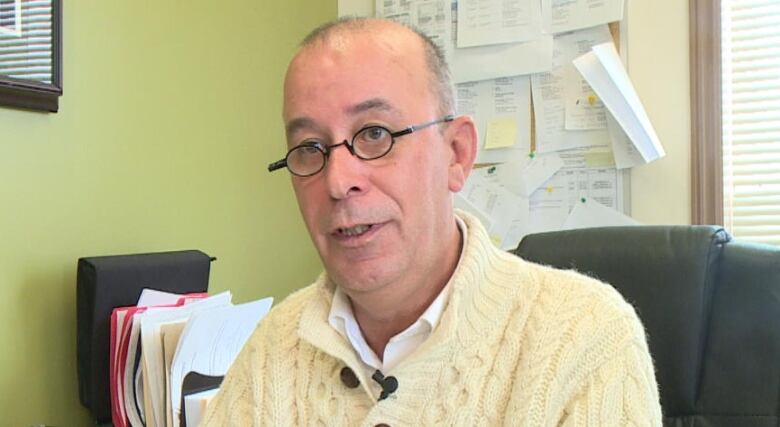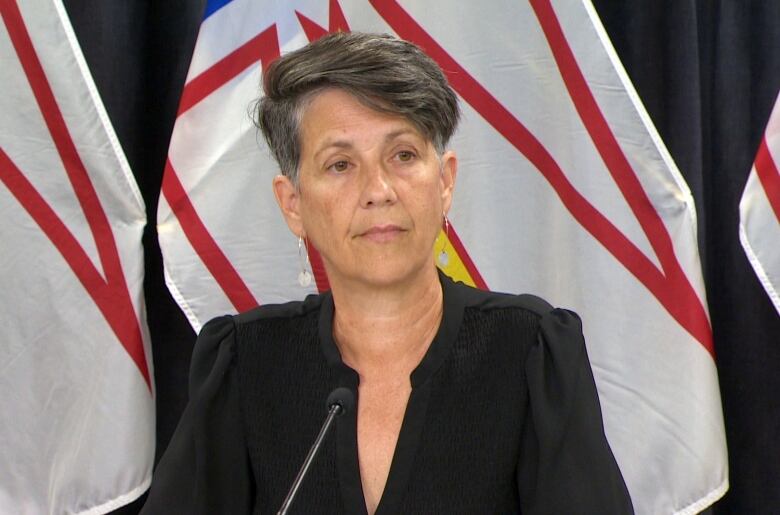Treating monkeypox as an LGBTQ disease contributes to stigma and spread, say advocates
First probable case in N.L. announced on Thursday

After Newfoundland and Labrador Public Health announced the first case of monkeypox in the province, some advocates are worried about potential stigma attached to the illness especially for members of the LGBTQ community.
Gerard Yetman, executive director of the AIDS Committee of Newfoundland and Labrador, said some media coverage of monkeypox in Canada has reminded him of the stigma attached to HIV and AIDS in the 1980s and 1990s.
"It reminded me of that because basically, once again, you know, HIV and AIDS was portrayed as a gay men's disease," he said Thursday.
During the HIV/AIDS crisis, people in LGBTQ communities across Canada faced discrimination, isolation and even violence because of the disease.
"A lot of people lost their housing and lost jobs, you know? Were really displaced within our society," Yetman said.
Dr. Theresa Tam, Canada's chief public health officer,said Wednesday most cases in Canada have been reported in men who have sex with men; however, she cautioned against associating the disease with the LGBTQ community, noting that anyone can get it.
Yetman said he wants Public Health and the media to avoid past mistakes.
"I think Public Health really needs to do some very strong messaging and to ensure that people are aware that no matter what sexuality you are and no matter what gender you are, it has nothing to do with how you can contract monkeypox," he said.
Striking a balance
Newfoundland and Labrador was the sixth province in Canada to report a probable case of monkeypox, which primarily spreads through prolonged close contact with an infected person.
Newfoundland and Labrador's acting Chief Medical Officer of Health, Dr. Rosann Seviour, said Thursday that Public Health is being careful to protect the identity of anyone who gets monkeypox in order to avoid the public shamingthatoccurred at the beginning of the COVID-19 pandemic in Newfoundland and Labrador.

Symptoms include a fever, aches and pains, a rash and lesions. Seviour said the disease usually doesn't require hospitalization, but can be extremely painful. If a person has symptoms of monkeypox they should self-isolate and call their physician or 811, she said.
Charlie Murphy, executive director of LGBTQ organization Quadrangle, said he believes Public Health is striking the right balance in its messaging so far but wants to see more resources in place like vaccination clinics.
"This is the first initial case, but it's always better to be ahead of that curve," he said.
Seviour said Thursday that close contacts of monkeypox cases are being offered vaccines, but the province isn't yet setting up vaccine clinics like the ones seen in other areas, like Montreal.

NikkiBaldwin, executive director of Planned Parenthood N.L., emphasized the disease is not spread solely through sexual contact, and is not specific to the LGBTQ community or gay or bisexual men.
"The fact that it is spreading through men who primarily have sex with men is because that's the community it's in. It's community spread. It's spread person to person with close contact," she said.
She said focusing on the LGBTQ community in public health messaging or education could leave the false impression that people outside that community can't get monkeypox.
"They may not recognize their symptoms or isolate properly, and that could increase the spread and that could be really detrimental to the whole public," she said.












_(720p).jpg)


 OFFICIAL HD MUSIC VIDEO.jpg)
.jpg)



























































































